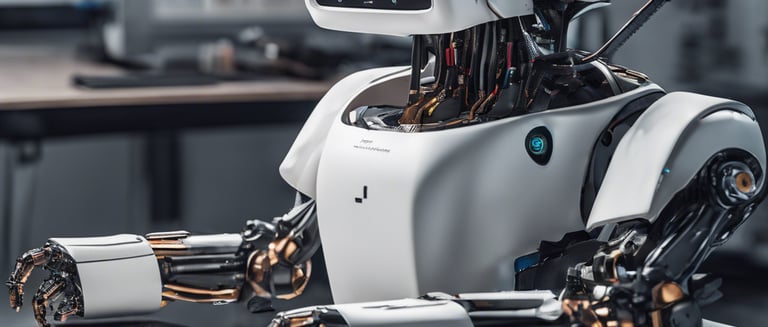Understanding the Difference Between Automation and AI Agents


Introduction to Automation and AI Agents
The concepts of automation and AI agents are often conflated, yet they serve distinct purposes in the technological landscape. Automation typically refers to using technology to perform repetitive tasks without human intervention. In contrast, AI agents are designed to simulate human intelligence, making decisions and learning from data.
Key Differences Between Automation and AI Agents
The main distinction between automation and AI agents lies in their complexity and capability. Automation is rule-based; it follows pre-defined instructions to complete tasks. For instance, automating data entry involves programming a system to input data in a specific format without deviation.
AI agents, however, operate at a higher level of sophistication. They use machine learning algorithms and neural networks to analyze data, recognize patterns, and make decisions. AI agents can adapt to new information and improve over time, making them more versatile than simple automation systems.
Large Use Cases of Automation
One prominent example of automation is in the manufacturing industry. Assembly lines have long utilized automation to enhance efficiency and reduce human error. Robots perform tasks such as welding, painting, and assembling components, ensuring consistency and speed that human labor cannot match. This not only boosts productivity but also allows human workers to focus on more complex and creative tasks.
Large Use Cases of AI Agents
In contrast, AI agents shine in scenarios requiring data-driven decision-making. A significant use case is in customer service through AI-powered chatbots. These chatbots can handle a wide range of customer inquiries, from simple FAQs to complex troubleshooting. They learn from each interaction, continuously improving their responses and providing more accurate and personalized support. This not only enhances customer satisfaction but also reduces the workload on human customer service representatives.
Conclusion
In summary, while automation and AI agents may seem similar, they have distinct roles and capabilities. Automation excels in handling repetitive, rule-based tasks, making it ideal for industries like manufacturing. AI agents, with their ability to learn and adapt, are better suited for dynamic environments such as customer service. Understanding these differences can help businesses leverage the right technology for their specific needs.

